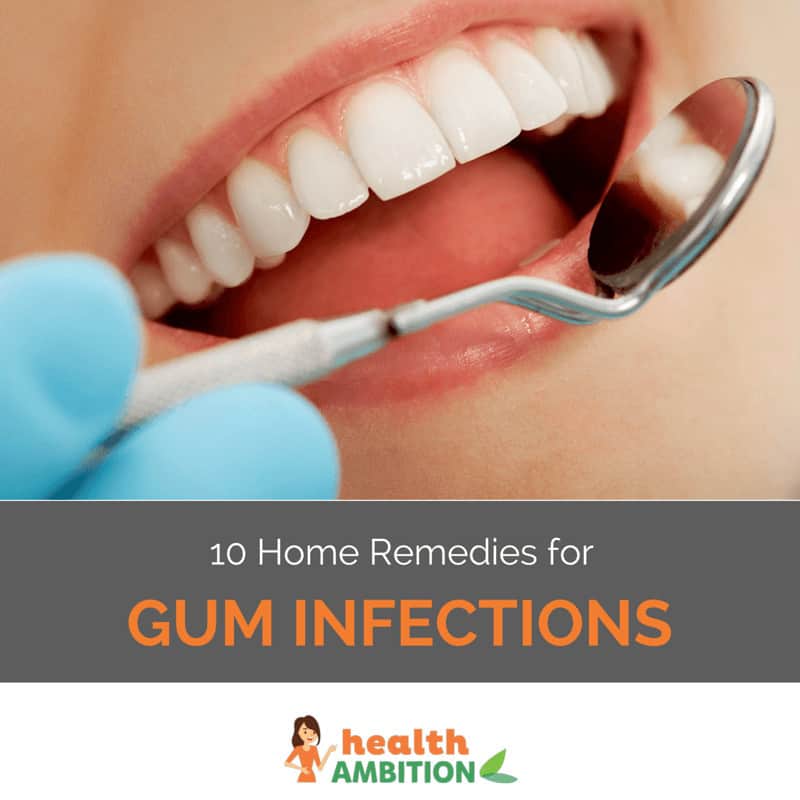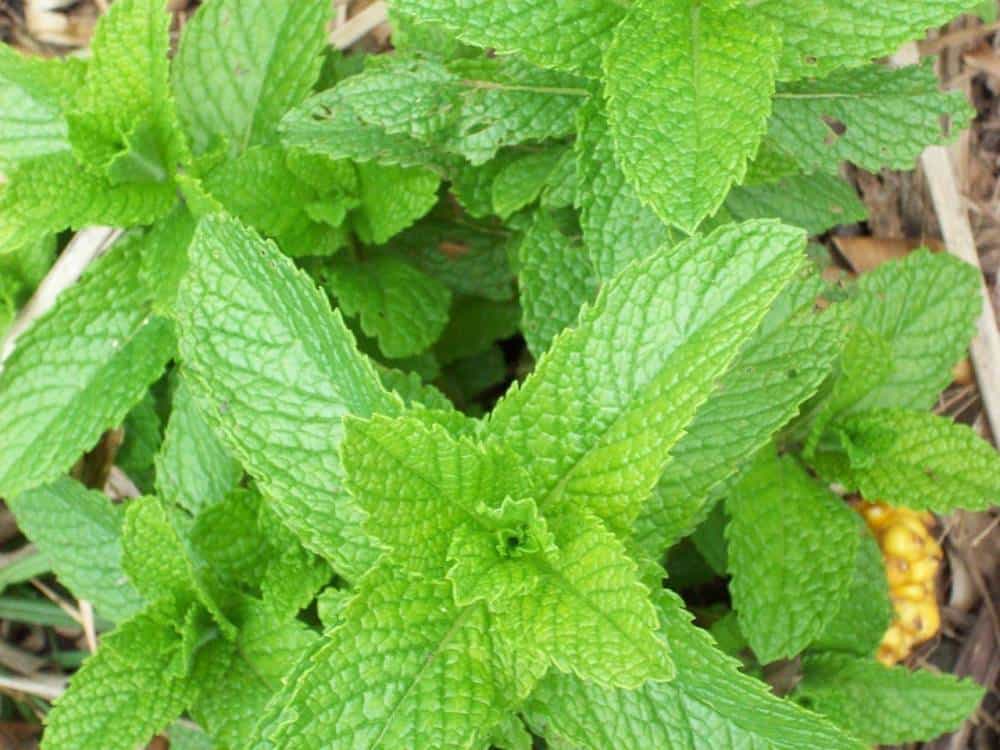
Gum disease is extremely common. 95% of us will suffer from it at some point in our lives. (source) Now who’s afraid of the dentist? I bet that’s another high percentage of you. So it’s no wonder we look for a home remedy for our oral ailments before taking the plunge and heading to the dental surgery.
Are home remedies effective for gum infections? Well, it depends on the exact type of infection and its severity. In some cases you can’t avoid the dentist. However, if you’ve got a mild infection there are several great options. Luckily, I’ve done the research for you, read on for 10 home remedies for gum infections.
Different Types of Gum Infection
Our mouth is naturally full of bacteria, and usually this is no problem – they’re the “good” kind. However, when we have a gum infection, it means that the bacteria have breached the surface and are populating the gum itself. This can be problematic as in severe cases it can enter the blood, leading to a life-threatening whole-body infection.

Gingivitis and Periodontitis
Gingivitis is the term for inflamed gum tissue usually as a result of plaque build up on the teeth which hardens to become tartar. If left untreated, gingivitis can turn into periodontitis – a more serious condition which can cause tooth loss and receding gums.
Abscesses
Another way that bacteria can manifest in your gums is to form an abscess. An abscess can form anywhere on your body but it’s particularly uncomfortable when it occurs in your mouth. It’s basically a swollen lump filled with pus (ew, I know) that again has the potential to breach the bloodstream if left untreated. (source)
The Symptoms of Gum Infection
Depending on the exact gum infection in question, the symptoms can vary slightly. Watch out for the following signs of gum infection:
- Red, swollen gums
- Bleeding when brushing
- Gum pain or tenderness
- Bad taste in the mouth
- Bad breath
- Visible pus or lump on gum
- Sensitive teeth
(source)
Causes of Gum Infection
The main cause of gum disease is poor oral hygiene. Plaque builds up between the gum and tooth eventually infecting the gum. Having a chipped tooth is also a risk factor along with smoking, genetic predisposition, poor diet and stress. (sources 1, 2)
10 Home Remedies for Gum Infections
1. Garlic
Garlic contains a compound called allicin which imparts antimicrobial properties. A study in The Journal of Medicinal Food tested allicin against dental caries and periodontitis.

It was found to be effective against all the tested bacteria.Crush one clove of garlic and mix with the same volume of honey or coconut oil to form a paste. Let it sit for minutes and then apply to the gums. (source)
2. Clove Oil
My pharmacist recommended clove oil when I had toothache a few years ago so I can attest to its efficacy. It has anti-fungal, antiseptic, bactericidal and painkilling properties. It may also soothe inflammation.
After brushing your teeth, massage your gums very gently with clove oil. Repeat twice daily until resolved. (source)
3. Peppermint Oil

Peppermint is another essential oil with antiseptic and anti-inflammatory properties. It also has a cooling effect as a result of its menthol content. Apply peppermint oil to inflamed gums in the same way as clove oil #5 above. (source)
4. Salt Water Solution
Salt water kills bacteria by sucking all the liquid from their cells and bursting them. Not a pretty image but this is just what we want when it comes to fighting gum infection. It can also draw out fluid from your gums to bring down swelling.
Dissolve 1 teaspoon of salt in ½ cup of warm water. Rinse your mouth thoroughly with the solution for about a minute. Repeat several times a day until resolved. (source)
5. Tea

Black tea in particular contains high levels of tannic acid which combat pain and inflammation. It also contains antioxidants which may be useful for infection.
Steep a teabag in hot water for 10 minutes, and then allow it to cool. Place the tea bag on the affected gum area for five minutes. Repeat several times a day until resolved. (source)
6. Turmeric Paste
Turmeric is a spice used in Asian and Middle Eastern medicine for hundreds of years. The active constituent is curcumin which has antimicrobial and anti-inflammatory properties.
The Journal of Natural Science, Biology and Medicine suggests making a paste made from 1 tsp of turmeric with ½ tsp of salt and ½ tsp of mustard oil for gingivitis and periodontitis. You should rub your teeth and gums with this paste twice daily. (sources 1, 2)
7. Aloe Vera

Aloe vera has a cooling and soothing effect on skin and gums. The Journal of the Indian Society of Periodontology concluded that aloe vera mouthwash can be used for gingivitis. You can buy plain aloe vera juice for this purpose or apply aloe vera gel directly to the gums. (source)
8. Hydrogen Peroxide
Hydrogen peroxide is commonly used to whiten teeth but did you know it’s also a strong antimicrobial? Make sure you use the 3% solution, not the highly concentrated one.
Mix the hydrogen peroxide with an equal quantity of water. Rinse your mouth with this, then spit it out. Repeat a few times a week, not more than that as it can cause irritation. Also make sure never to swallow it. (source)
9. Manuka Honey

Manuka honey is a special strain of honey from New Zealand. It has potent antibacterial and healing properties backed by scientific evidence.
A study in The Journal of The International Academy of Periodontology found that Manuka honey could be used to reduce dental plaque and gingival bleeding. Apply the honey directly to your gums but avoid getting too much on your teeth as it is high in sugar. (source)
10. Cranberry Juice
Cranberry juice is high in vitamin C which may help fight infection. It also helps stop bacteria adhering to your teeth. A study in The Journal of Periodontology linked low vitamin C with higher rates of periodontal disease. Drink a small glass of cranberry juice daily to reap the benefits. (source)
Cautions
The above options are all great in very mild cases of gum infection or while waiting a few days for a dental appointment. However, if your symptoms don’t improve after a few days or get worse at all, you must see your dentist immediately. (source)
If you suspect that you have an abscess in your gum, don’t try to treat it yourself as it can spread easily to the bloodstream which can be fatal. The dentist will most likely drain the abscess and give you antibiotics to clear up the infection.
Conclusion
I wish you best of luck with these 10 home remedies for gum infection. Remember to take good care of your teeth to avoid developing an infection in the first place – brush twice a day, use mouthwash and don’t eat too much of sticky, sugary foods.
Leave a comment